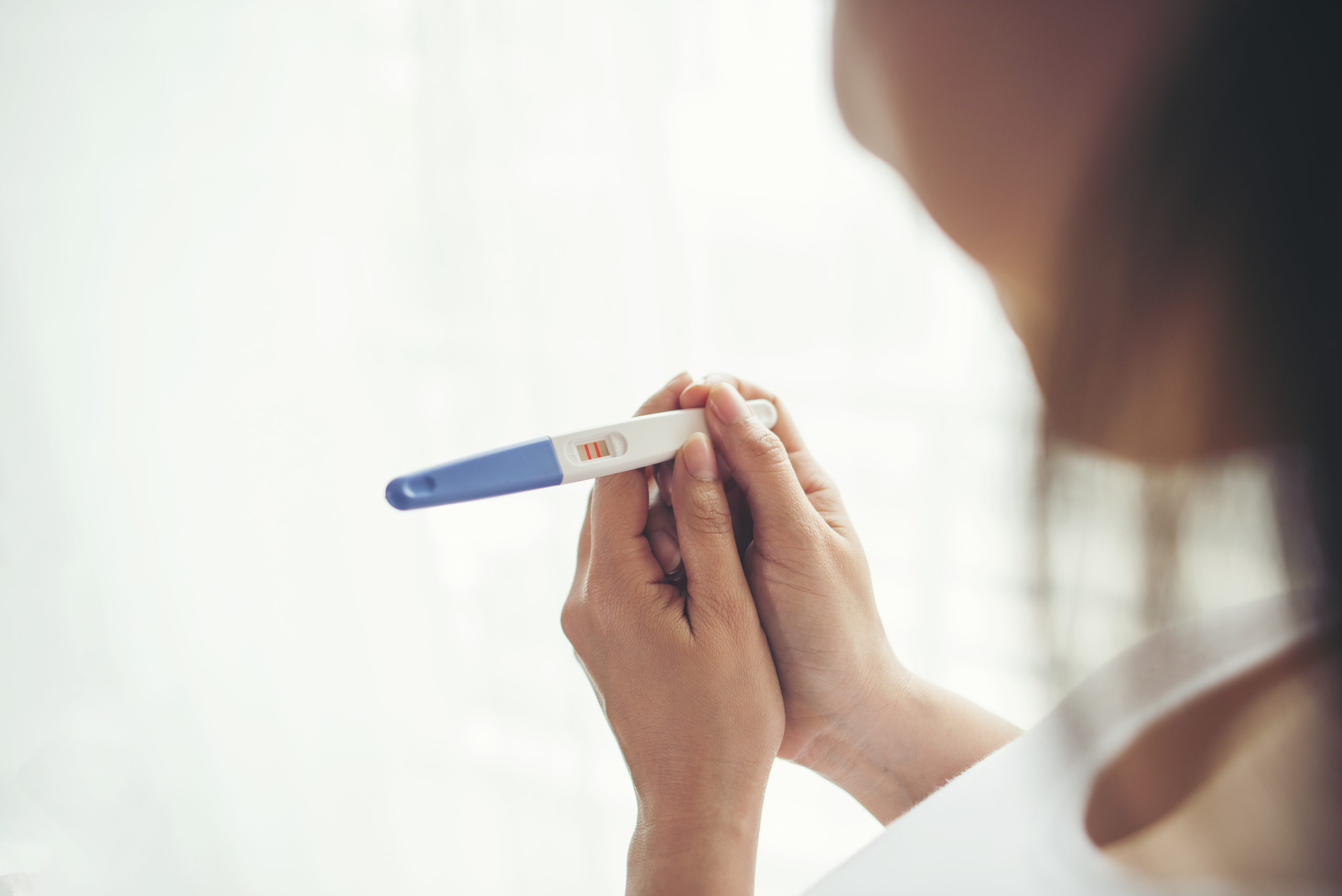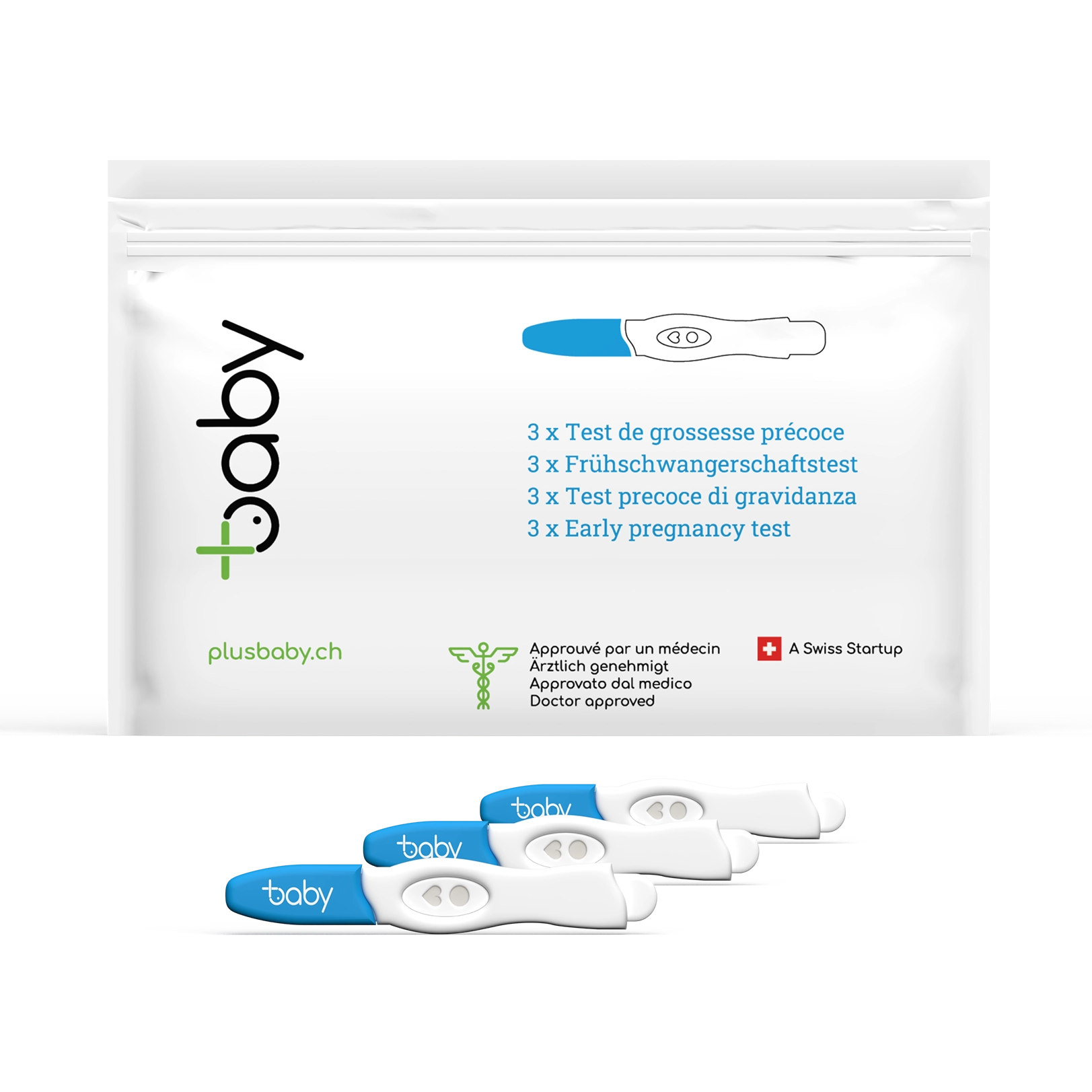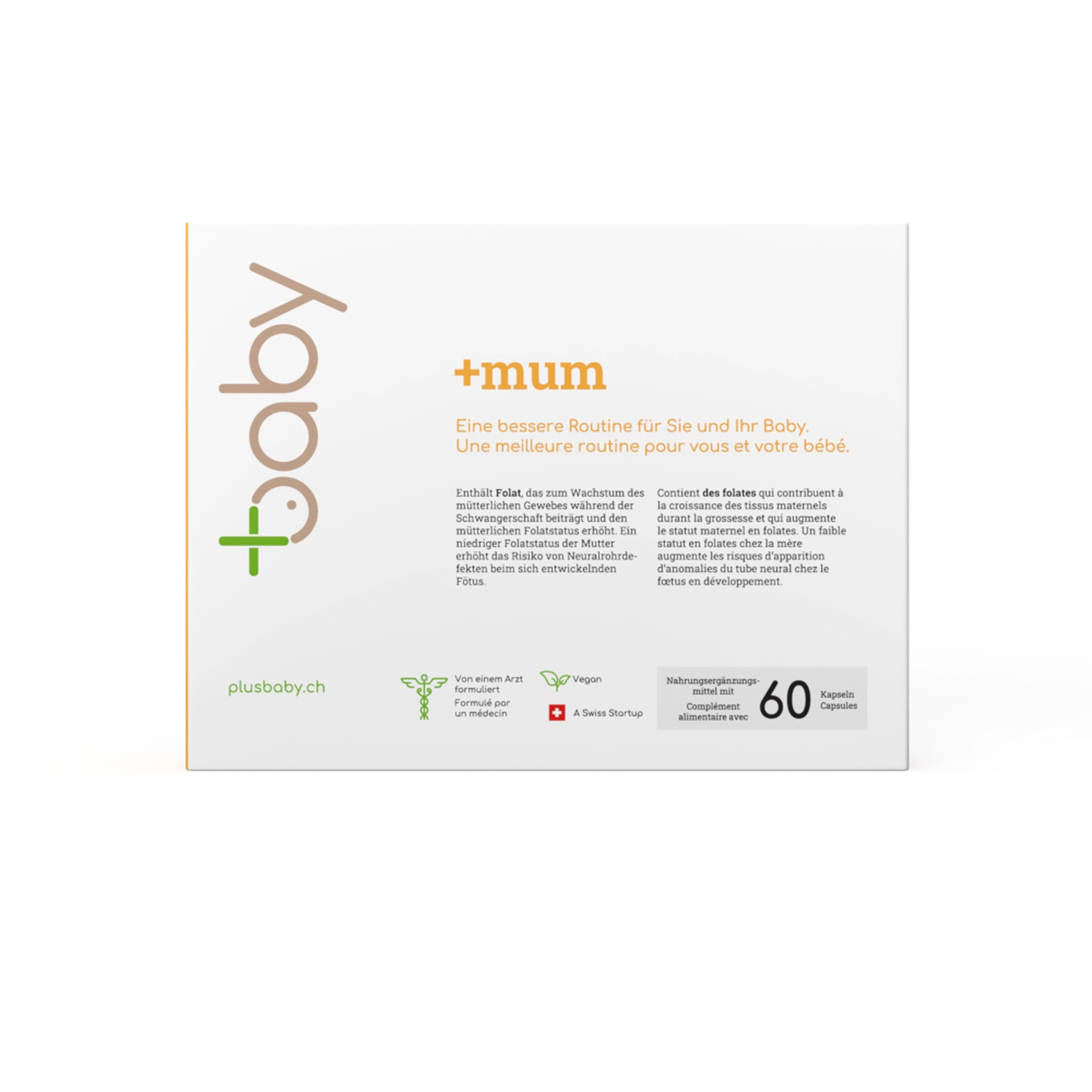Many early signs of pregnancy can be non-specific and easily confused with other causes. As a result, it can be difficult for a person to know when to take a pregnancy test. In this article, we provide you with tools for when to take a pregnancy test and why.
The start of pregnancy may be suspected:
- When your periods do not come
- When periods are not as usual (irregular, less abundant, for example)
- When emergency contraception was taken during the previous cycle and there are doubts about its success.
Stopping your periods is usually the main sign of the start of pregnancy, but not always. You may notice symptoms such as breast tenderness, morning sickness, changes in appetite and mood swings.
An effective way of finding out: the pregnancy test
A pregnancy test can be taken from the first few days of delayed menstruation. Before this time, the pregnancy test is not reliable (the test may be negative even though a pregnancy has begun, but is not yet detectable by the test).
Pregnancy and the hCG (human chorionic gonadotropin) hormone test
The adventure of pregnancy begins with the detection of the hormone hCG (human chorionic gonadotropin), a key biomarker of gestation. This hormone, synthesised by trophoblast cells following fertilisation of the ovum, gradually increases in concentration in the pregnant woman’s blood and urine. It is crucial to note that the detectable presence of hCG in body fluids is not immediate; it requires a post-ovulatory interval, often estimated at between 12 and 15 days for a standard 28-day menstrual cycle. This phase is essential in order to reach a hormonal threshold that can be reliably detected by urine or blood pregnancy tests. This period is therefore crucial to the reliability of the test.
When should a pregnancy test be carried out?
Determining the ideal time to take a pregnancy test is a question that combines both medical science and individual understanding of the female reproductive cycle. According to medical recommendations, in particular those of the Food and Drug Administration (FDA) and other health bodies, it is generally advisable to wait until the first day of late menstruation before taking a urine pregnancy test.
Why this waiting period? The answer lies in the biology of the hormone hCG (human chorionic gonadotropin). After fertilisation, hCG is produced by the cells that will later form the placenta. This hormone is crucial for maintaining pregnancy in the first few weeks. However, its concentration in the urine or blood gradually increases, requiring a certain amount of time before reaching a threshold detectable by pregnancy tests.
Some modern pregnancy tests are designed to be more sensitive, capable of detecting low levels of hCG a few days before menstruation is delayed. However, to maximise accuracy and minimise the risk of false negatives, many experts recommend waiting until at least a week after the delay in menstruation to carry out a second urine test and confirm a result that will then be more reliable.
Plusbaby pregnancy tests offer an innovative and reliable solution for early and accurate pregnancy detection. Designed to meet the needs of women looking for fast, accurate results, Plusbaby tests stand out for their high sensitivity to hCG, enabling detection a few days before menstruation is delayed. With an accuracy rate of over 99%, these tests are the ideal choice for women who want to confirm their condition quickly, while offering the convenience and discretion of home testing.
The three pregnancy tests in the Plusbaby pack are designed to support women throughout the uncertain period before pregnancy confirmation. This choice reflects an understanding of hormonal variations and the need for precision. Women can use the first test as early as 3 days before their period, the second test on the day their period is expected and finally the third test a few days later to confirm the result. This system makes it possible to manage uncertainty and offer greater peace of mind thanks to repeated, reliable results.
Waiting for a pregnancy test can be nerve-wracking, but understanding how hormones work and the recommended timing can help you manage this period better. If in doubt, a medical consultation is always advisable for personalised, precise advice, taking into account each woman’s individual health and reproductive history.
Early and sensitive pregnancy tests
Early and sensitive pregnancy tests, such as those from Plusbaby, represent a significant advance in the early detection of pregnancy. These tests are designed to detect low levels of the hormone hCG, making them suitable for use a few days before the usual delay in menstruation, offering a quicker response for those who are anxious to know. Waiting until 21 days after unprotected intercourse is another recommended method for increasing the accuracy of the test, as this allows hCG to accumulate to a high enough level to be detected. These tests therefore offer a reliable option for those looking to detect early signs of pregnancy, such as nausea, fatigue or changes in the breasts, as soon as possible.
Early signs of pregnancy
If someone is pregnant, it’s best to find out as soon as possible. Not only can she start planning the next steps, but there may also be health considerations and lifestyle changes to take into account.
Some women notice early signs of pregnancy, such as tiredness or breast tenderness, even before their period is late.
There are many early signs of pregnancy and they can vary from one woman to another. The absence of periods is often the first indicator of a potential pregnancy. Women may also notice changes in their breasts, such as tenderness and swelling. Light bleeding or spotting may occur, a sign that the embryo is implanting. Cramps, similar to those experienced during menstruation, are also common. Nausea and vomiting, often referred to as morning sickness, can occur at any time. Fatigue is a common symptom, as are mood swings due to hormonal fluctuations. Sudden food cravings or aversions are also common, as is an increase in urinary frequency. Finally, slight abdominal swelling and changes in taste and smell may be observed.
Interpreting test results
Correctly interpreting the results of a pregnancy test is crucial. A positive result generally means that the hCG hormone has been detected, indicating pregnancy. However, it is important to understand that a positive result is not an absolute guarantee of pregnancy. False positives, although rare, can occur for a variety of reasons, such as certain medications, medical problems or test errors.
Negative results usually indicate that there is no pregnancy. However, a negative test should not always be interpreted as a definitive absence of pregnancy, especially if it is carried out too early. False negatives can occur if the test is carried out before the hCG hormone reaches a detectable level in the urine, or if the test is used incorrectly.
In both cases, it is advisable to repeat the test a few days later for confirmation, especially if there is any doubt or persistent symptoms of pregnancy. In the event of contradictory or confused results, a medical consultation for a blood test or a more in-depth assessment is recommended.
How do I use a pregnancy test?
To use a pregnancy test correctly, first follow the instructions on the packaging. Generally, the test involves holding a strip or stick under a stream of urine for a few seconds or dipping it into a beaker previously filled with urine. It is often recommended to use the first morning’s urine, as it is more concentrated in hCG, making the test more sensitive. After applying the urine, lay the test flat and wait the time indicated in the instructions to read the result. Patience is crucial; reading the result too early or too late can affect its accuracy.
When should you consult a doctor?
It is advisable to consult a doctor after a positive pregnancy test to confirm the pregnancy and begin appropriate antenatal care. Even if the test is negative, if your period has not returned or if you have persistent symptoms of pregnancy, a medical consultation is advisable to rule out any other cause of your symptoms or to carry out additional tests. In addition, if you have any pre-existing medical conditions, complications or questions about your reproductive health, it is important to discuss them with a healthcare professional.
When to take a pregnancy test and medical follow-up
The first sign of pregnancy is often the absence of periods, but breast changes, fatigue, headaches and other changes may also appear in the first few weeks.
Anyone who has had sexual intercourse without contraception and shows early signs of pregnancy should have a test.
If the result is positive, negative or uncertain, a medical consultation is recommended for confirmation and appropriate advice. This prudent approach not only ensures accuracy in detecting pregnancy, but also provides essential support for the health and well-being of the pregnant woman.
CHF 39.90 Original price was: CHF 39.90.CHF 19.90Current price is: CHF 19.90.
CHF 39.90 Original price was: CHF 39.90.CHF 19.90Current price is: CHF 19.90.
















